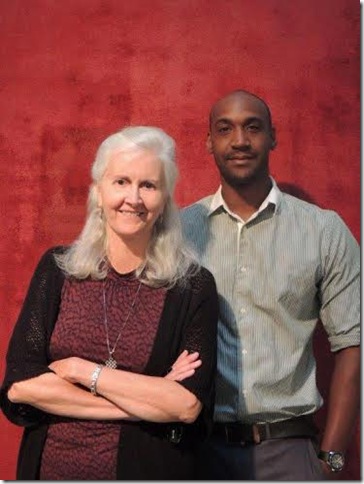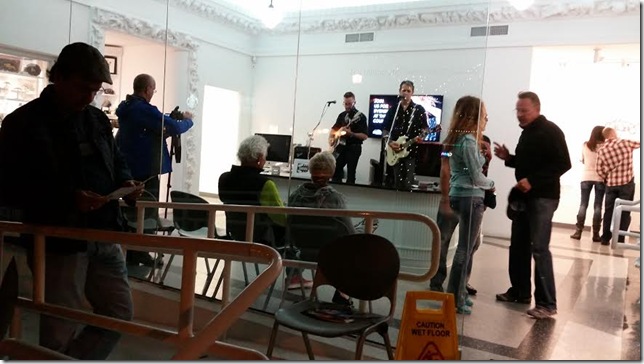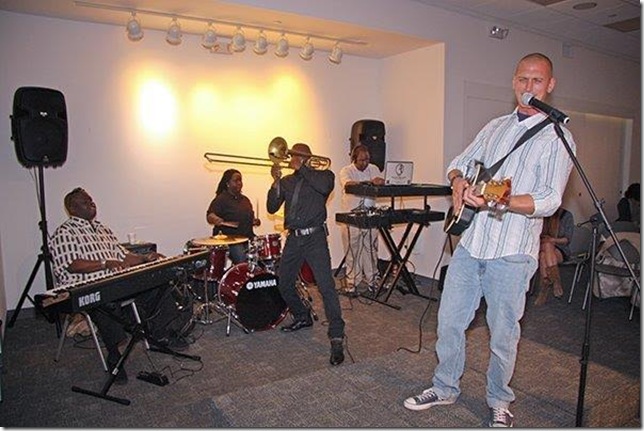As emails go, one from May 28 proved unusual enough that it needed to be re-read.
It was from Kathleen Alex, chief financial officer at the not-for-profit Cultural Council of Palm Beach County, inviting area musicians and music biz types to a June 15 meeting at the organization’s Lake Worth headquarters.
And while the underlying purpose may have been to get some in attendance to enroll in the council’s still-new Musicians Services program (a mission it accomplished), this email contained some welcome verbiage. Alex wrote that she, along with visitors’ services and music coordinator Marlon Foster and president and chief executive officer Rena Blades, wanted to “discuss how we can better serve musicians and further promote a thriving musical community in Palm Beach County.”
And the meeting — even if it was based mostly in common-sense issues — proved a good foundation to build upon.
The council’s $60 annual solo artist membership is primarily for fledgling individual artists; the $125 performer membership for established working musicians, and $250 band membership a discounted group rate for five people or less, with escalating benefits like listings, discounted advertising, and prospective paid performances at council events and area venues.
Many in attendance June 15 were already members, including singer/songwriters Jason Hanley, Craig McInnis and JC Dwyer, drummer Jeff Abbott (whose jazz group Sugawack had joined as a band), and regional School of Rock owner Rick Rothschild — whose son, singing guitarist Ben Rothschild, also joined as a band with his group of fellow students, Jumbo Shrimp.
With only word-of-mouth advertising, the council had 24 memberships and counting after its first year, including Julius and Julia Sanna’s cultural group Positively Africa, former Greenwich Village singer/songwriter Rod MacDonald, and some of the area’s best guitarists from blues (Mario LaCasse) to jazz (Jim McCreavy) to fusion (Frank Axtell).
Prospective members who attended the meeting included Bamboo Room entertainment director Ryan McJury, who helped parlay the venue’s soft July 2-4 reopening into a recent permanent one before being replaced by general manager Ben Foster, promotion and ’zine impresario Steev Rullman (TheHoneyComb.com, Pure Honey), and reggae bandleader, vocalist and percussionist Marijah.
“Can you help get local performers hired at SunFest?” asked Marijah. “I’ve certainly seen better entertainment there than this year’s.” This may be due, in part, to the fact that outside agencies are used in the booking process, and headlining acts hold more say than ever over who precedes them, with a byproduct being that this year’s “locals” were mostly Florida acts from non-local areas.
There was also talk about teenage bands charging less than seasoned ones, therefore getting gigs by undercutting, when in fact many of those undercutting acts are professionals in finance, medicine or law who put their garage bands back together but don’t necessarily need to get paid to play.
Yet Foster, Alex and Blades deftly held the meeting together. All three play or have played instruments; have spent significant time in musical hotbeds, and therefore have strong backgrounds in the art. Blades hails from Houston, one of the epicenters of Texas music, and played the flute while often witnessing live opera and classical music with her family. At the June 15 meeting, she furiously wrote out notes on a mounted oversize pad while the suggestions flew.
Still, it’s Foster and Alex who are in charge of the membership program’s nuts, bolts and purse strings. Alex dabbles in multiple instruments and is from Buffalo, N.Y., which has always had a strong underground scene, especially in jazz, and is in the vicinity of multiple prominent music schools and the Canadian music capital of Toronto.
Foster was born in Orlando, but moved to England as a small child before returning to Florida to oversee the council’s visitors services program three years ago, and may be its musical wild card. He’s a rapper, keyboardist and producer who still sports a British accent, and he lobbied to head up its Musicians Services, instituted after the strong response to the council’s Visual Artists Services program that was implemented the year before.
“Government grants often help artists in England, including musicians,” Foster says. “Here, there are more philanthropists, which is something that’s much more rare over there. I looked at how visual arts in this area are often funded by charitable people, and wondered why it couldn’t be the same way for music. And not just classical music, but all styles.
“Selfishly, I also wanted to use our services to connect with other musicians,” he said. “But it’s to help form a community, like there is in England. People there always seem to come out and support you when you have a gig, and help you connect with other people and venues regionally.”
Those who have toiled for long enough within the South Florida music hope the program has a chance. South Florida has always had great music schools producing estimable talent that realized it had to go somewhere other than this area’s tourist-driven scene to succeed at higher levels.
“Marlon talked to me about joining, and it seemed like a really unique and necessary idea,” says McInnis, who plays solo and with fellow West Palm Beach-based singer/guitarist Dwyer in Duover, and is also a visual artist who’s a Cultural Council member in both mediums. “It’s a pleasant surprise. Like the visual arts side, it seems geared toward the greater good, which means like-minded individuals can help it grow organically. Every scene has its good people, and this can help to find them.”
“The Cultural Council has been around for 38 years, and has always been involved with visual artists,” says Blades, “but never in such a day-to-day way as it’s become with our Visual Artists Services program. Before, when we held focus groups and invited every kind of artist, we were surprised that the vast majority were in the visual field. But when we moved into our Lake Worth location in January of 2012, we knew the community would lend itself toward us serving all artists. And with Marlon and Kathleen’s help, the musicians are coming on board.”
They’ll need some time to catch up to the visual artists.
“Between individuals and organizations,” Alex says, “I’d say we have about 120 visual arts members. But I’m hoping we can get to the next level musically this year by getting to 100.”
“We’ve already shown the work of about 220 area visual artists in our building alone,” added Blades.
The stately former movie theater at 601 Lake Ave. is certainly better-suited to art exhibitions than to concerts, but that hasn’t stopped Foster and Alex. They’ve presented several shows by members among their “Lobby Desk Concerts” in the council’s front room during the past year, along with monthly open mics (in which Foster sometimes participates) in an interior room. All council events, both there and at remote locations, naturally resume with more frequency once our non-summer tourist season starts in October.
“Marlon was practically overjoyed after the meeting,” Alex says, “both with how many people showed up and how much they were willing to voice their opinions.”
“It really was a surprise,” Foster says. “We want to have future meetings for other topics and updates, but things that were discussed that we can work toward right away include contract templates for gigs, and networking through Facebook and other social mediums. And I still think people will come out more if they’re offered quality entertainment. I know I do!”
How long it might take for area audiences to know, or care, about quality and creativity over karaoke, soloists with programmed backing tracks, and other lowest common denominator ilk is the unanswerable question. But the council didn’t just end up in Lake Worth — a throwback small-town artistic community that’s resisted the commercialization of neighbors like West Palm Beach and Delray Beach — by coincidence.
“It’s one of the reasons we moved from West Palm to Lake Worth three years ago,” Blades said, “because six years ago, Lake Worth definitively told us they were going to revitalize their economy using the arts. Now, they don’t really have the money to do that now, of course. It’s a really strapped city.
“But we liked the idea of being integral in helping the community build through the arts. So we’ve applied for grants to form a serious plan, and we finally got a $160,000 grant through the Community Foundation to hire a cultural planner to work with the city, us, and other citizens, groups and non-profits. Finding funding in such a competitive market is always the challenge, but I’m confident that our music program could be a real priority within that plan, because it’s a town that really could become a music hub.”
Foster says he wants the Musicians Service effort to “change things, even though it’ll take awhile.
“I want area musicians to be valued for their work, and to help them to negotiate better and not have to settle. If one venue says no, we’ll go out of our way to find them another place to work. We can be a good backup for musicians, and help all of us work together to form a musical community; to help one another out rather than undercutting.”


